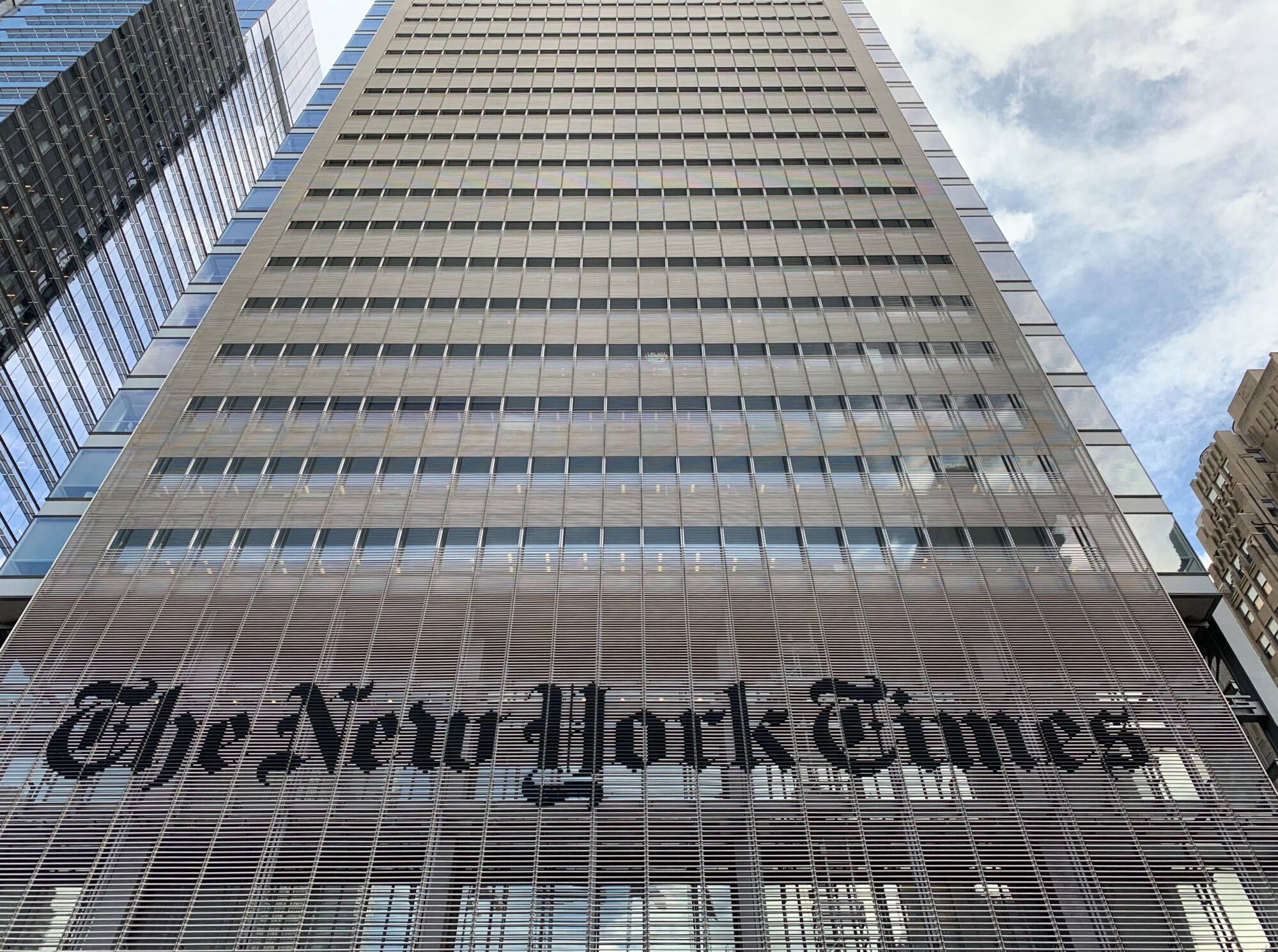
The New York Times is suing the European Union over access to text messages exchanged between EU Commission President Ursula von der Leyen and Pfizer CEO Albert Bourla.
The iconic American newspaper is not the first publication to attempt to set its sights on the text messages exchanged between von der Leyen and Bourla during negotiations in 2020 for the EU’s purchase of hundreds of millions of doses of COVID-19 vaccines. Journalists have been hoping the messages will shed light on the negotiations and the deal struck between the big pharmaceutical company and von der Leyen on behalf of the bloc’s 27 member states.
The suit was filed on January 25th, according to the public register, and is pending a decision by the European Court of Justice.
No more details have been made available to the public yet, but Politico reports that sources close to the case confirmed the reason for the suit. The New York Times refused to comment, saying in a statement that it routinely files freedom of information acts and consequent lawsuits when institutions are hesitant to produce the requested documents.
The news site netzpolitik.org journalist Alexander Fanta first sought the text messages in a public information request in 2021 but was told they couldn’t be found. A January 2022 investigation by European Ombudsman Emily O’Reilly found that the Commission had not explicitly asked von der Leyen’s office to look for text messages and identified maladministration in the commission’s handling of the text messages.
The German newspaper Bild also subsequently filed a series of lawsuits against the Commission to get access to documents related to negotiations for the purchase of the COVID-19 vaccines from Pfizer/BioNTech and AstraZeneca according to Politico, which is owned by the same publisher as Bild. It obtained several documents, including emails, but not the sought-after text messages.
Late last year, the European Public Prosecutors Office also opened an investigation into the vaccine procurement process.
